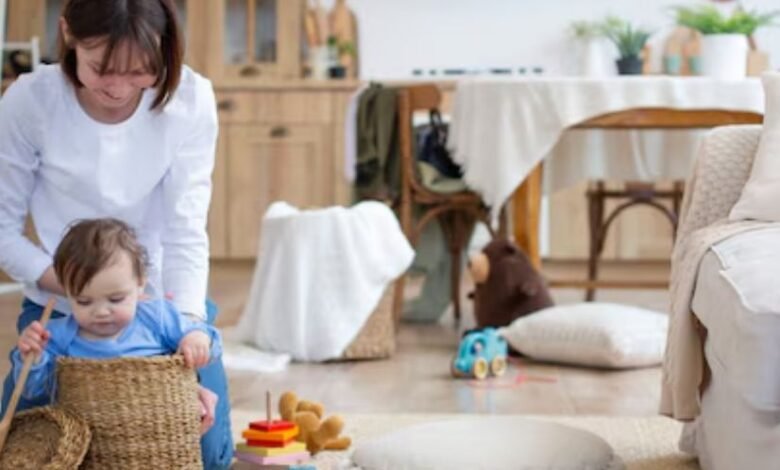Find the Perfect Fit: Childcare Centers Near Me for Early Learning Success

As a parent, choosing the right childcare center is one of the most important decisions you’ll make for your child. Early learning plays a critical role in shaping a child’s cognitive, social, and emotional development. But with so many options available, how do you find the perfect childcare center near you? This article will guide you through the process, offering insights into early learning, important factors to consider, and key questions to ask when evaluating childcare centers.
What is Early Learning and Why Is It Important?
Early learning refers to the education and development children receive from birth to around age eight, with a strong emphasis on ages 0-5. During these years, children rapidly develop crucial skills like language, motor coordination, and social interaction. Research has shown that children who participate in quality early learning programs are better prepared for school and life, with benefits ranging from improved academic performance to enhanced social skills.
Key benefits of early learning:
- Development of cognitive and problem-solving skills.
- Emotional regulation and ability to interact with others.
- Increased self-confidence and independence.
- Foundation for lifelong learning.
Toybox Childcare near me that emphasize early learning provide a structured environment where children can grow, play, and explore. They help prepare kids for school while also fostering creativity, curiosity, and collaboration.
Factors to Consider When Choosing a Childcare Center
Choosing the right childcare center goes beyond proximity; it’s about finding a place that meets your child’s unique needs while aligning with your family’s values. Here are several factors to consider:
1. Location and Accessibility
One of the first things parents look for is convenience. Having a childcare center near home or work can make life significantly easier. But proximity alone isn’t enough—ensure the center is easily accessible and located in a safe, clean environment. Also, check if they have convenient hours that match your schedule.
2. Caregiver Qualifications and Experience
The caregivers and teachers at the center are crucial to your child’s well-being. Look for certified professionals with experience in early childhood education. A well-trained staff ensures that children are in safe hands and are engaging in activities that promote learning and development. Ask about staff turnover, as a stable environment with long-term caregivers often indicates a better quality of care.
3. Safety and Cleanliness
Safety should be your top priority. Inspect the center’s facilities to ensure they follow strict safety protocols, such as locked entrances, emergency preparedness plans, and age-appropriate toys and play equipment. The cleanliness of the facility is also critical, as it reduces the risk of illnesses.
4. Curriculum and Learning Approach
Different childcare centers may have different teaching philosophies. Some may follow structured curriculums with a focus on academic readiness, while others might adopt play-based or Montessori methods. Understand the center’s educational philosophy to ensure it matches your child’s learning style and your expectations for early education.
5. Child-to-Teacher Ratio
A lower child-to-teacher ratio means more individual attention for your child. It allows caregivers to focus on the specific needs of each child, ensuring they receive personalized support and care. A ratio of 1:4 or 1:5 is generally considered ideal for toddlers, while preschoolers may thrive in slightly larger groups.
6. Cost and Flexibility
Childcare costs vary widely depending on the type of program, location, and services offered. Be sure to inquire about all fees, including registration, materials, and meals, so there are no surprises. Additionally, check if the center offers flexible schedules or part-time options, which may better suit your family’s needs.
Exploring Different Types of Childcare Centers
When searching for childcare options near you, it’s helpful to know the different types of centers available. Each comes with its own strengths and challenges, so it’s essential to find the best fit for your family.
Traditional Childcare Centers
These full-time facilities typically offer structured programs that include play, learning activities, and meals. Traditional childcare centers usually have a set schedule for naps, meals, and playtime, and often provide care for children of varying ages, from infants to preschoolers.
Montessori and Alternative Learning Models
Montessori centers focus on self-directed learning, encouraging children to explore and learn at their own pace. Other alternative learning models like Reggio Emilia and Waldorf focus on hands-on learning and creativity. These centers are great for parents looking for a more individualized approach to education.
In-Home Childcare and Family Daycare
In-home childcare or family daycare is typically run by caregivers who watch children in their own homes. This setting offers a more intimate environment with fewer children, often leading to more personalized care. It’s ideal for parents looking for a home-like setting with small group sizes.
The Role of Play in Early Learning
In many high-quality childcare centers, play is at the heart of early learning. Through play, children develop important social, cognitive, and emotional skills. Play-based learning environments allow children to explore their world, build relationships, and enhance problem-solving skills.
Social Skills Development
Group activities help children learn how to interact with their peers, take turns, share, and resolve conflicts. These experiences are critical in preparing children for kindergarten and elementary school, where collaboration and communication are key.
Creativity and Imagination
Through pretend play, art projects, and building activities, children express their creativity and imagination. These activities not only foster innovation but also develop fine motor skills and cognitive abilities that will serve them in the future.
How to Evaluate Childcare Centers: A Step-by-Step Guide
Visiting potential childcare centers is a critical step in the selection process. Here’s a guide to ensure you make an informed decision:
Step 1: Schedule a Tour
Visiting the facility gives you a firsthand look at the environment. Pay attention to how staff interact with the children, the cleanliness of the rooms, and whether the space feels welcoming.
Step 2: Ask the Right Questions
Some key questions to ask include:
- What is the daily routine like?
- What curriculum or learning approach do you use?
- How do you handle discipline and conflict resolution?
- What safety measures are in place?
- What is the child-to-teacher ratio?
Step 3: Check References and Reviews
Ask the center for parent references or look up online reviews. These reviews often provide honest insights into other parents’ experiences and can reveal any potential issues.
Frequently Asked Questions (FAQs)
1. What should I look for in a childcare center for early learning?
Look for safety, qualified staff, a structured curriculum, a nurturing environment, and positive reviews from other parents.
2. How do I know if a childcare center is safe for my child?
Check for secure entrances, safety protocols, low staff-to-child ratios, and well-maintained facilities.
3. What’s the best age to enroll my child in a childcare center?
Children as young as six months can benefit from quality childcare, but it’s important to assess your child’s needs and readiness.
4. What is the difference between Montessori and traditional childcare?
Montessori emphasizes self-directed learning and mixed-age classrooms, while traditional childcare centers usually follow a more structured curriculum.
5. How much does childcare typically cost?
Costs vary by location, program, and services offered, ranging from $200 to $1,500 per month.
Conclusion: Finding the Right Childcare Center for Early Learning
Choosing a childcare center is a significant decision that impacts your child’s development. By considering factors like safety, staff qualifications, curriculum, and location, you can find the perfect fit for your child’s early learning journey. Trust your instincts and take the time to visit and evaluate multiple centers to make an informed choice.
Remember, the right childcare center not only prepares your child for academic success but also nurtures their social, emotional, and physical growth.

